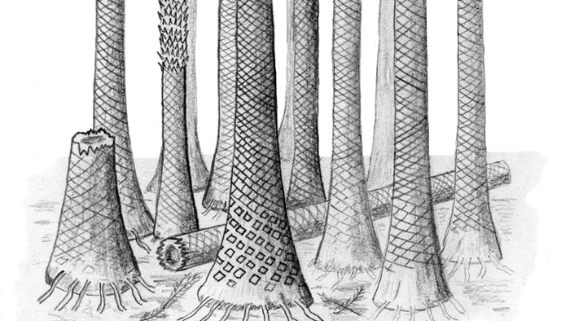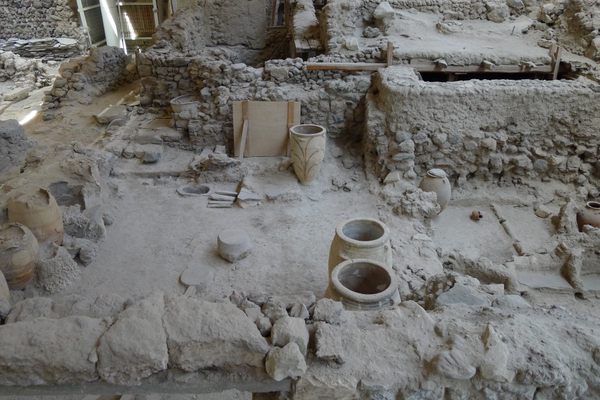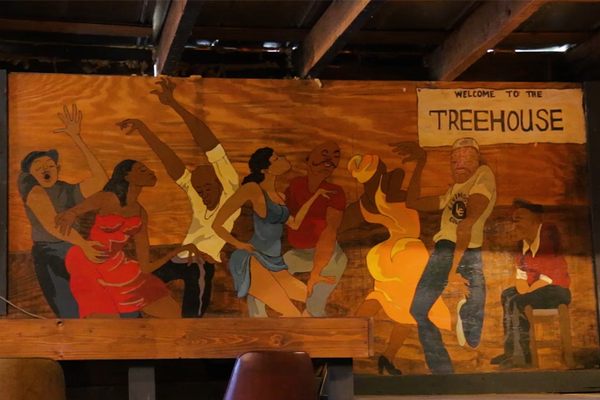FOUND: A Fossilized Forest That Helped Change the World

A drawing of the fossilized trees (Image: University of Cardiff)
In the present time, the archipelago of Svalbard is located about as far north as humans care to live, edging up into the Arctic ocean. But 380 million or so years ago, this same piece of land was an equatorial place, covered, according to a new study published in Geology, in palm-like trees that helped dramatically change the planet’s climate.
Chris Berry, of the University of Cardiff, has discovered on Svalbard an ancient forest, now fossilized. The fossilized tree stumps indicate that this area would have been covered in dense stands of lycopod trees, reaching about 13 feet tall.
At the time, these would have been wildly impressive trees. Before this period, which is known as the Devonian, the plants on Earth were scrubbier, shorter things. But as trees started towering towards the sky for the first time, they changed the entire world. They began to cover the land and sucked up huge quantities of carbon dioxide, so much so that they changed the global temperature of Earth.
Ultimately, that change set the stage for the existence of life as we currently know it. These growing plants transformed this planet into an entirely different place than it once was, just by existing.
Bonus finds: Skeleton of a “witch” girl, hoard of Roman coins
Every day, we highlight one newly lost or found object, curiosity or wonder. Discover something unusual or amazing? Tell us about it! Send your finds to sarah.laskow@atlasobscura.com.












Follow us on Twitter to get the latest on the world's hidden wonders.
Like us on Facebook to get the latest on the world's hidden wonders.
Follow us on Twitter Like us on Facebook